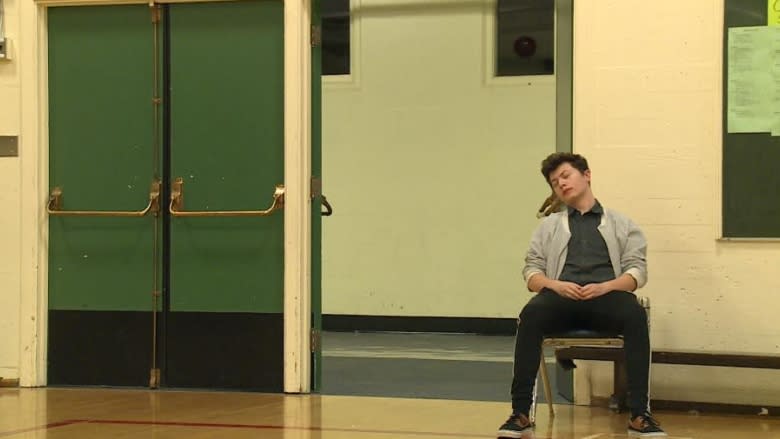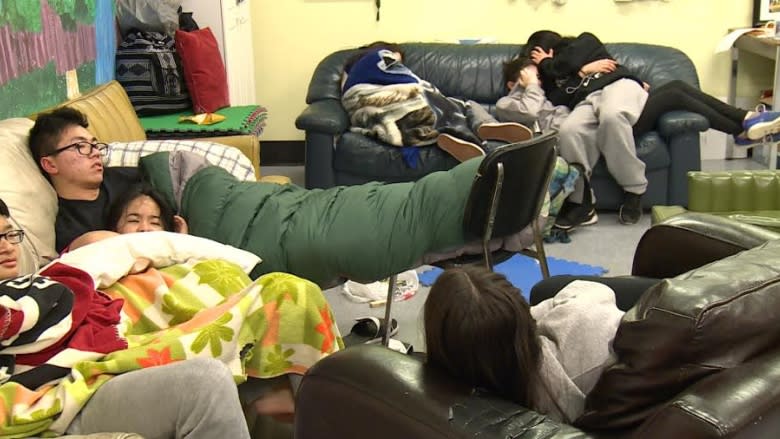Sleepless in East Vancouver: Teaching students the importance of rest
Students at Vancouver Technical Secondary School wanted to learn how sleep deprivation affects their minds and bodies.
They got a crash course when about 120 students arrived at the east end high school Friday at dusk and deliberately stayed up all night. By dawn, most students were beyond tired.
"I'm probably going to pass out," said Grade 11 student Cyrus Jordan in an interview Saturday morning.
The event was billed as a "Wake-a-thon". Throughout the night and morning, students performed physical and mental exercises to test their reactions to sleep deprivation.
"I hope that a lot of people realize that pulling all-nighters really isn't a good idea," Jordan added. "You get mood swings. You get all sorts of stuff."
Grade 12 student Charlotte Keay noticed her reflexes dulled as the night wore on — she had trouble catching a ruler dropped between her hands.
"It was just too quick for me to process," she said. "The reflexes I noticed the most."
9.5 hours per night
The night-long marathon was the latest in a series of events at the high school aimed at improving students' awareness of the effects of sleep deprivation.
Grade 12 counsellor Veronika Farnell said an earlier survey that asked students about their moods and sleep habits found that students at Vancouver Technical Secondary School had higher incidents of anxiety and weren't getting the recommended amount of sleep.
Farnell said teenagers need about nine-and-a-half hours of sleep per night. Vancouver Technical students were getting — on average — about seven-and-a-half hours.
To address that deficit, the school initiated projects to get students thinking about what keeps them up at night. Vancouver Coastal Health Authority and researchers from the University of British Columbia provided assistance.
Farnell puts part of the blame on technological devices — from glowing smartphones, which many teens bring to bed — to tablets and laptops.
She's found multi-episode series like those on Netflix cause some students to binge watch late into the night.
She said parents also don't seem to realize that kids are on their phones all the time.
"At night in bed, texting each other", which she said studies show, "creates a bit of an adrenaline rush in the body."
Keay said she's often seen the effects of a bad sleep at school.
"Focusing is really hard," she said. "You're just kind of like a shell, just sitting there in your classroom, trying to learn, maybe not, just sleeping on your desk."
Teachers and students will study the results gathered from the Wake-a-thon in the coming months.



